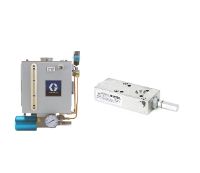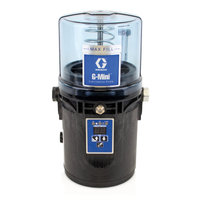7 Significant advantages of automatic lubrication
Automatic lubrication systems offer many advantages such as reduced downtime and maintenance costs.
Productivity and extended uptime are key in today’s economy. Automatic lubrication systems have been designed to increase uptime of machines and vehicles. Next to that, automatic lubrication offers more advantages in terms of cost savings, durability, productivity and safety.
Increasing uptime is the topic of conversation in today’s industry. Automatic lubrication (autolube) has been specifically designed to increase machine uptime. Consider the following key benefits of switching to an autolube system for your production facility, industrial machines or fleet.
1. Extended equipment life
By providing your equipment with the right amount of lubricant at the right time and in the right place, automatic lubrication results in reduced wear and extended equipment life. Automatic lubrication forms a thin layer between moving machine parts to avoid these parts scraping against each other. By avoiding direct metal-to-metal contact, the components will be protected against wear and will last longer. Learn more about how automatic lubrication works in the article What is lubrication and why is it important?
2. Reduced consumption of lubricant
Automatic lubrication systems provide small amounts of lubricant at more frequent intervals, reducing the consumption of lubricant. This does not only save on the costs of oil or grease, it also protects the environment.
3. Reduced maintenance costs
Because automatic lubrication extends equipment life by reducing wear, you will save on spare parts. On top of that your machine does not need manual point-by-point lubrication by technicians, so you can lower your maintenance costs considerably. Lubing with a grease gun is tedious for technicians compared to the 15-minute inspection and refill time of an autolube system.
4. Reduced machine downtime
Avoiding a standstill of your installations is key to enhance your overall productivity. Unlike manual lubrication, automatic lubrications systems do not require to be shut down in order to add more oil. Lock-out and tag-out procedures can be avoided and the machines can keep on running while the lubrication system takes care off adding the right amount of lubricant for optimal lubrication. That way automatic lubrication drastically cuts your labour- and downtime.
5. Safer and healthier working conditions
In manual lubricated environments, a machine technician uses a grease gun to lube all necessary machine parts. Some of the vital machine parts are very difficultly accessible and require climbing on the machine, sometimes when it is still running. This poses big safety risks that can be avoided by the installation of an automatic lubrication system. Autolube also avoids human contact with lubricants and avoids spilled oil on the floor eliminating the hazard of slipping out.
6. Environmental improvements
Automatic systems measure the exact amount of lubricant required. Waste, product contamination and housekeeping issues are substantially reduced. Improved lubrication for bearings, gears and chains translates to lower friction and lower energy consumption.
7. Suitable for any application
Automatic lubrication systems come in many types, such as single-line parallel, series progressive, dual line and multi-line, each with its specific advantages and application areas. Because of this wide range ,generally any application can be lubricated with an automatic lubrication system.
5 Reasons Why You Need Automatic Lubrication
Protect your equipment and your employees by utilizing automatic lubrication to grease critical lube points.
Related Articles
What is lubrication and why is it important?
Lubrication is a crucial element in the efficiency and life-expectancy of any rotating equipment.
The pitfalls of manual lubrication
Manual lubrication poses important disadvantages in terms of costs, safety and productivity.
Single line parallel or series progressive: which automatic lubrication configuration to choose?
Single line parallel or series progressive: what’s the difference and when should you use one rather than the other?









